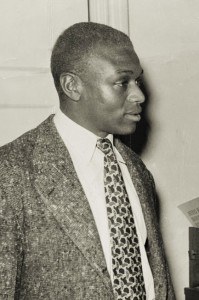
The Alpha Kappa Alpha Centennial Barbie.
This week more than 25,000 women have gathered in Washington, DC to commemorate the 100th anniversity of the Alpha Kappa Alpha, the United States’ oldest Black sorority. Alpha Kappa Alpha, more commonly known as AKA, was founded in 1908, on the campus of Howard University.
Since it’s creation, AKA has inducted more than 200, 000 women, including many prominent Black women in the entertainment, science, business, and education fields. Among the organization’s most widely recognized members are:
- Actress Phylicia Rashad
- Brown University President Ruth Simmons
- Congresswoman Sheila Jackson Lee
- Singer and Actress Loretta Devine
- Former D.C. Mayor Sharon Pratt Kelly
A highlight of the centennial celebration — and possibly its most controversial attendee– will be Mattel’s newly-issued, limited edition Alpha Kappa Alpha Centennial Barbie. The doll, which retails for $50, is the first that Mattel has created based on any sorority.
Some may question the choice of this storied Black women’s organization to link it’s 100th anniversary celebration with such a highly criticized product. Barbie has, after all, been the object of considerable criticism for its marketing of unrealistic beauty standards and body image to deeply impressionable girls.
Mattel, which approached AKA once they learned of the sorority’s milestone anniversary, is enthusiastic about this new relationship. Says Elizabeth Grampp, director of Barbie collector marketing,
When you pair that milestone with an organization representing an amazing cross section of women who are empowered leaders in any field, it’s a real opportunity to introduce the hobby of collecting to a new group of collectors. It’s such a landmark event.
For their part, AKAs seems to be, for the most part, comfortable comfortable with the decision. When plans for the doll were first made public in January of this year, AKA -affiliated blogger TransGriot expressed excitement, writing that, “The pretty girls that wear twenty pearls and the TransGriot will be expanding our Barbie collections soon.” Blogger BeBarbie, writing this week, reports that dolls at the convention are selling fast!
The AKA Centennial Barbie follows last year’s “Ivy Rose” doll, created for and marketed by the Sisterhood Boutique. The “Ivy Rose” retails for $125.00.
Posted by Ajuan Mance







